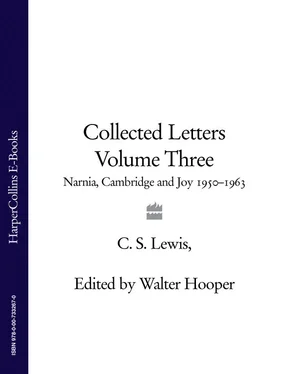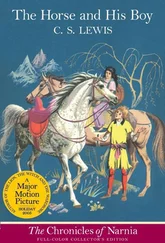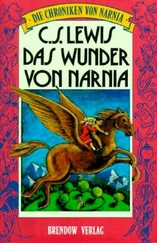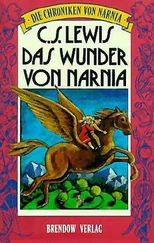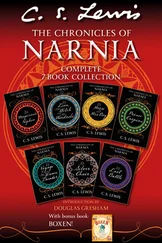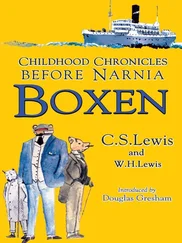About your kind compliment to me in the Preface, I like it of course. The real question is whether it will do you good or harm. I am much hated as well as much loved and the connection with me will damn you with certain reviewers. I’d advise you to omit it, but you must do exactly as you please.
They were wrong in saying I was away that Friday and I’m sorry they did, because I had staying with me a man whom I wd. like you to have met. He has read your previous books & likes them, and has in common with you the qualities of being (a.) A Christian—R. C. (b.) A schoolmaster (c.) An old pupil of mine. Not that you are exactly a schoolmaster. His name is G. Sayer (The College, Malvern)
Of course you were right to send me the MS. All best wishes: you are doing a most valuable work.
Yours
C. S. Lewis
TO CAROL JENKINS (W): 21
REF.52/60
Magdalen College,
Oxford.
22nd January 1952.
Dear Miss Jenkins,
It is a pleasure to answer your question. I found the name 22 in the notes to Lane’s Arabian Nights: 23 it is the Turkish for Lion. I pronounce it Ass-Ian myself. And of course I meant the Lion of ludah. I am so glad you liked the book. 24 I hope you will like the sequel (Prince Caspian) which came out in November.
Yours sincerely,
C. S. Lewis
TO WILLIAM L. KINTER(BOD): TS
REF.52/64.
Magdalen College,
Oxford.
22nd January 1952.
Dear Mr. Kinter,
By an odd coincidence your very handsome and acceptable gift arrived by the same post as the enclosed letter: which I send to you as a proof that I was not so rude as to ignore your very interesting and welcome letter of last year. Wise after the event, I now see that you were merely on a visit to New York, and had not changed your permanent address.
You cannot imagine what the arrival of a ham means to the average British household these days: it would be untrue to say that we are short of food, but our sufficiency is a very monotonous one, and such luxuries as you have sent me have a very cheering effect.
With very many thanks, and all best wishes for 1952,
yours sincerely,
C. S. Lewis
TO WAYLAND HILTON YOUNG (P): 25
Magdalen College,
Oxford.
Jan 31st 1952
Dear Mr. Hilton Young
Lanes 26 have sent me a copy of your paper on my novels, and suggested that we shd. meet. If you could run down and lunch with me in college on any day next month except the 7th and 12th (Sundays are bad, but possible) I’d be delighted to have a talk afterwards. But—would it be a risk? I have an idea that a critic and a book are company, but that the author is de trop. 27 Wd. my Milton book have been improved or ruined by a meeting with Milton? Because, you see, there is hardly any limit to our disagreements about my trilogy.
But ought you to take any notice of the fact? When I’ve said that there is no allegory in it, and that there’s nothing at all about the Second Coming in T.H.S., 28 you may reply ‘Well, that is what the books mean to an intelligent reader and what does it matter what you meant them to mean?’–a point of view I wholly agree with. Still, I hope you’ll come: we shd. probably have several other authors to discuss.
You could hardly conceive how different my approach was from yours. The germ of Perelandra was simply the picture of the floating islands themselves, with no location, no story, and no [?] 29 The way you allegorise the 3 species on Mars is masterly: and those three, because—well, however one does invent things: presumably because I’m human and therefore can’t invent things except by splicing up human nature. Query—is it possible for any man to write a fantastic story which another man can’t read as an allegory? (The history of medieval criticism makes it clear that the answer is No).
Do come, and name your day: 1 o’ clock at the college lodge, and ask to be shown to the Smoking Room.
Yours sincerely
C. S. Lewis
TO MARY VAN DEUSEN (W):
Magdalen
31/1/52
Dear Mrs. Van Deusen–
How singular! In the last year my life also became much ‘better’ and, just like you, I often feel a little frightened. We must both distinguish (a.) The bad Pagan feeling that the gods don’t like us to be happy and that it excites Nemesis: see Browning’s Caliban upon Setebos 30 (b.) The good Christian caution lest we become soft and self indulgent and cease to recognise one’s dependence on God.
That suffering is not always sent as a punishment is clearly established for believers by the book of Job and by John IX. 1-4. That it sometimes is, is suggested by parts of the Old Testament and Revelation. It wd. certainly be most dangerous to assume that any given pain was penal. I believe that all pain is contrary to God’s will, absolutely but not relatively. When I am taking a thorn out of my finger (or a child’s finger) the pain is ‘absolutely’ contrary to my will: i.e. if I could have chosen a situation without pain I would have done so. But I do will what caused pain, relatively to the given situation: i.e. granted the thorn I prefer the pain to leaving the thorn where it is. A mother smacking a child wd. be in the same position: she wd. rather cause it this pain than let it go on pulling the cat’s tail, but she wd. like it better if no situation which demands a smack had arisen.
On the heathen, see I Tim. IV. 10. 31 Also in Matt. XXV. 31-46 the people don’t sound as if they were believers. Also the doctrine of Christ’s descending into Hell * and preaching to the dead: wd. that would be outside time, and include those who died long after Him as well as those who died before He was born as Man. I don’t think we know the details: we must just stick to the view that (a.) All justice & mercy will be done, (b) But that nevertheless it is our duty to do all we can to convert unbelievers. All blessings.
Yours sincerely
C. S. Lewis
TO THE EDITOR OF THE CHURCH TIMES (EC)? 32
Magdalen College,
Oxford.
Sir,–
I welcome the letter from the Rural Dean of Gravesend, 33 though I am sorry that anyone should have regarded it necessary to describe the Bishop of Birmingham as an Evangelical. To a layman, it seems obvious that what unites the Evangelical and the Anglo-Catholic against the ‘Liberal’ or ‘Modernist’ is something very clear and momentous, namely, the fact that both are thoroughgoing supernaturalists, who believe in the Creation, the Fall, the Incarnation, the Resurrection, the Second Coming, and the Four Last Things. This unites them not only with one another, but with the Christian religion as understood ubique et ab omnibus. 34
The point of view from which this agreement seems less important than their divisions, or than the gulf which separates both from any non-miraculous version of Christianity, is to me unintelligible. Perhaps the trouble is that as supernaturalists, whether ‘Low’ or ‘High’ Church, thus taken together, they lack a name. May I suggest ‘Deep Church’; or, if that fails in humility, Baxter’s ‘mere Christians’? 35
C. S. Lewis
TO JILL FREUD (T):
Magdalen College
Oxford
15/2/52
It lies on my mind that I talked some nonsense about a ‘tread mill’ in my note yesterday. Pretty good rot for a man who is being given full pay for doing what most people do in their spare time. Wash it out. I only meant the engine is happily doing N revs, per second!
J
TO VERA MATHEWS (W):
Magdalen College,
Magdalen
17/2/52
Dear Miss Mathews
You will think I have taken a terribly long time over the Nabob, 36 but the only time I have for such things is the week ends and the last two have been fully occupied by going through proofs of a new translation (someone else’s) of the gospels. 37 And now, before I say anything, remember that—as I think I said, the short story is not my Form at all, so that my criticism will be amateurish.
Читать дальше
